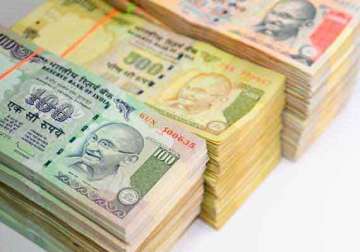Mumbai: Pick-up in exports and decline in gold imports are likely to keep the country's Current Account Deficit lower during the rest of the fiscal as compared to the same period last year, a report said today.
“We expect the CAD to be lower in the remaining quarters of the FY'14 than the corresponding quarters in FY'13 in view of a pick-up in exports and a significant drop in gold imports,” India Ratings today said in a research report. In the July-September quarter, CAD narrowed to USD 5.2 billion, or 1.2 per cent of GDP, as against USD 21 billion, or 5 per cent of the GDP, in same period of last fiscal.
Gold imports in Q2, 2013-14 dropped to USD 3.6 billion, from USD 16.4 billion in the April-June quarter due to hike in duties and other measures taken by the government to curb the inward shipments of the commodity, the report said.
The report believes that despite the uneven global recovery, the momentum witnessed in exports growth will continue in the near term as there are signs of improvement in both the US and the core economies of Eurozone.
According to a recent estimate by International Monetary Fund, the US economy is expected to grow at 1.6 per cent in 2013, while Germany and France are expected to grow at 0.5 per cent and 0.2 per cent, respectively.
“An improvement in the demand conditions in advanced economies coupled with rupee depreciation is helping merchandise exports,” the India Ratings report said.
Merchandise exports increased 11.9 per cent to USD 81.2 billion in Q2 FY'14 from USD 73.9 billion in the first quarter.
Depreciation of the rupee has improved competitiveness of Indian exports, particularly of textiles and textile products, leather and leather products and chemicals, the report added.
It further said that though some increase in imports growth in second half of this fiscal is expected, it will be limited due to stable crude prices and lower gold imports. However, the report said that due to the nuclear deal with Iran, the tension in the Middle-East is likely to ease leading to reduced volatility in crude prices.
Despite lower CAD in Q2, FY'14, there was a drawdown of forex reserves to the tune of USD 10.4 billion from a drawdown of USD 0.2 billion in the same quarter last year, and USD 0.3 billion in Q1 FY'14 on a balance of payment (BoP) basis.
“A decline in CAD alone is not going to shore up the BoP, attracting inflows through the capital and financial account is equally important to improve BoP and reduce the pressure on rupee to depreciate,” the report said.
Although attracting inflows through foreign direct investment (FDI) is always better, the other routes including the swap window introduced by the Reserve Bank of India will be helpful in the short term, the report said. The Reserve Bank has mobilised USD 34 billion through a special swap window for FCNR(B) funds and banks' overseas borrowings.
The central bank closed the swap window that was opened in September this year to garner forex reserves and to help rupee stabilise, on November 30.
Latest Business News
